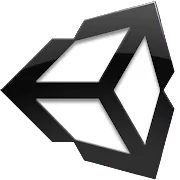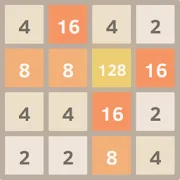Terms
-
Action Games: Fast-paced games that focus on physical challenges, like platformers and shooters.
-
Adventure Games: Games centered around exploration and puzzle-solving, often with strong narratives.
-
Role-Playing Games (RPGs): Games where players take on the roles of characters in a fictional universe, including sub-genres like JRPGs and MMORPGs.
-
Simulation Games: Games that simulate real-life activities, such as flight simulators or life-simulation games like The Sims.
-
Strategy Games: Games that require tactical thinking, including real-time strategy (RTS) and turn-based strategy (TBS).
-
Sports Games: Games that mimic real-world sports, such as FIFA or NBA 2K.
-
Racing Games: Focus on vehicle racing, from hyper-realistic simulators to arcade-style games.
-
Puzzle Games: Games that challenge problem-solving skills, such as Tetris or Candy Crush.
-
Horror Games: Designed to create fear and suspense, often involving survival mechanics.
-
Battle Royale: Large-scale multiplayer games where players fight until only one remains, made famous by titles like Fortnite and PUBG.
-
PC Gaming: Games played on personal computers, providing extensive customization and flexibility.
-
Console Gaming: Dedicated gaming systems like PlayStation, Xbox, and Nintendo Switch.
-
Mobile Gaming: Games designed for smartphones and tablets, enabling gaming on the go.
-
Cloud Gaming: Streaming games directly over the internet without the need for powerful hardware, such as Google Stadia.
-
VR Gaming: Immersive virtual reality experiences using platforms like Oculus Rift or PlayStation VR.
-
AR Gaming: Games that integrate the virtual and real world, such as Pokémon GO.
-
Handheld Gaming: Portable gaming devices like the Nintendo 3DS or Steam Deck.
-
Gaming PCs: High-performance computers built specifically for gaming.
-
Gaming Consoles: Systems like PlayStation, Xbox, and Nintendo Switch, designed exclusively for gaming.
-
Graphics Cards (GPUs): Crucial for rendering high-quality visuals in games.
-
Processors (CPUs): The central unit that affects overall system performance.
-
RAM: Memory that influences load times and the ability to multitask.
-
Storage Solutions: SSDs and HDDs used to store games and data.
-
Gaming Monitors: Displays with high refresh rates and low latency for smoother gameplay.
-
Keyboards and Mice: Precision peripherals for an enhanced control experience.
-
Controllers: Gamepads or joysticks for console and PC gaming.
-
Headsets: Immersive audio devices for gaming and multiplayer communication.
-
Gaming Chairs: Ergonomic seating designed for comfort during long gaming sessions.
-
Game Engine: Frameworks like Unity or Unreal Engine used to build games.
-
Programming Languages: C++, C#, and Python, commonly used in game development.
-
3D Modeling: The process of creating three-dimensional assets for games.
-
Animation: Bringing characters and environments to life through movement.
-
Level Design: The process of creating stages or environments within games.
-
Game Design Document (GDD): A comprehensive document outlining game mechanics and features.
-
Alpha/Beta Testing: Stages of testing before final release to gather feedback and identify bugs.
-
Modding: Creating user-generated modifications to enhance games.
-
AI in Games: Incorporating artificial intelligence to make non-playable characters (NPCs) more reactive and challenging.
-
Sound Design: Crafting and integrating the sound elements of a game, including music and effects.
-
MMORPG (Massively Multiplayer Online Role-Playing Game): Games like World of Warcraft featuring large player communities.
-
LAN Parties: In-person gatherings where players connect to a local network to play together.
-
Online Multiplayer: Games that enable multiple players to interact over the internet.
-
eSports: Competitive gaming tournaments with professional players and large audiences.
-
Guilds/Clans: Player-formed groups that collaborate within games.
-
Leaderboards: Rankings of top players based on their performance.
-
Matchmaking: The process of pairing players with similar skill levels in multiplayer games.
-
Voice Chat: Tools integrated into games to facilitate communication between players.
-
Streaming: Broadcasting live gameplay on platforms like Twitch and YouTube Gaming.
-
Virtual Economies: In-game marketplaces where players exchange virtual goods and currencies.
-
Gamers: Individuals who regularly play video games, often categorized by genre or platform preference.
-
Streaming: The act of broadcasting gameplay to an online audience.
-
Let’s Play: Video series where players record themselves playing games with commentary.
-
Speedrunning: The act of completing games as quickly as possible, often using shortcuts or glitches.
-
Cosplay: The practice of dressing up as characters from games, often seen at conventions.
-
Fan Art: Artistic creations inspired by video games.
-
Memes: Humorous content and trends within the gaming community.
-
Tournaments: Competitive events for gamers, typically with rewards or recognition.
-
Forums and Communities: Online spaces where gamers can discuss games and share experiences.
-
Influencers: Content creators who shape trends and opinions in the gaming world.
-
Reviews: Critical assessments covering gameplay, graphics, and storyline.
-
Previews: Early impressions of upcoming games, often based on initial footage or demo versions.
-
Walkthroughs: Detailed guides to help players navigate through difficult sections of games.
-
Let’s Plays: Playthrough videos of games with live commentary and reactions.
-
News: Updates on game releases, patches, and industry developments.
-
Interviews: Discussions with game developers and industry professionals.
-
Top Lists: Rankings of games based on factors like popularity or quality.
-
Tutorials: Instructional content to help players improve their skills or learn new techniques.
-
Opinion Pieces: Articles expressing personal viewpoints or commentary on gaming trends.
-
Podcasts: Audio shows discussing gaming news, developments, and culture.
-
Ad Revenue: Income generated from placing ads on the website.
-
Affiliate Marketing: Earning commissions by promoting gaming products or services.
-
Sponsorships: Partnerships with brands to mutually promote content and earn financial support.
-
Merchandising: Selling branded products related to gaming content.
-
Subscription Models: Offering premium content or services for a recurring fee.
-
In-Game Purchases: The sale of virtual goods or currency within a game.
-
Crowdfunding: Raising funds for game development via platforms like Kickstarter.
-
Microtransactions: Small purchases made within a game, often for cosmetic items.
-
Patreon: A platform that enables creators to receive ongoing financial support from fans.
-
Digital Distribution: Selling games directly through platforms like Steam or the Epic Games Store.
-
Keywords: Specific terms that gamers search for, such as “best RPGs 2024” or “gaming PC builds.”
-
Long-Tail Keywords: More targeted phrases that attract niche audiences, such as “how to speedrun Super Mario.”
-
Meta Tags: HTML elements providing search engines with details about the website.
-
Backlinks: Links from other websites pointing to your site, enhancing SEO.
-
Content Marketing: Creating valuable content to engage and retain your audience.
-
User Engagement: Techniques to increase interaction on your website, like comments or shares.
-
Responsive Design: Ensuring your website functions well on mobile and tablet devices.
-
Page Speed: Optimizing website loading times to enhance user experience and SEO.
-
Analytics: Tools to track and analyze website performance and user behavior.
- Social Media Integration: Connecting your website with platforms like Twitter or Facebook to extend your reach.
Building a successful gaming website involves a strategic understanding of relevant terminology that resonates with your target audience, boosts your website’s SEO, and delivers valuable content. Below is a comprehensive guide to key terms from the gaming ecosystem, categorized for optimal website optimization.
1. Gaming Genres
Understanding gaming genres is essential for organizing your content and attracting specific user groups.
2. Gaming Platforms
Different gaming platforms serve various player preferences and hardware configurations.
3. Gaming Hardware
Essential hardware components and peripherals that are key for an enhanced gaming experience.
4. Game Development
Terms related to the creation and production of games, crucial for developers and enthusiasts.
5. Online Gaming
Terms related to multiplayer experiences and online interactions in gaming.
6. Gaming Culture and Community
Terms that capture the social and cultural elements of gaming.
7. Game Reviews and Media
Terms related to reviewing, discussing, and evaluating games.
8. Monetization and Business
Terms related to the financial side of the gaming industry and gaming websites.
9. SEO and Content Strategy
Key terms for optimizing a gaming website to attract visitors and improve search engine rankings.
 Board
Board
 Card
Card
 Casual
Casual
 Family
Family
 Strategy
Strategy
 Adventure
Adventure
 Arcade
Arcade
 bus
bus
 Driving
Driving
 Unity3D
Unity3D
 WebGL
WebGL
 Drawing
Drawing
 Best Games
Best Games
 Color
Color
 Puzzle
Puzzle
 1 Player
1 Player
 2048
2048
 2D
2D
 Air
Air
 Android
Android
 Bubble Shooter
Bubble Shooter
 Fight
Fight
 2 Player
2 Player
 2 Player Games
2 Player Games
 Action
Action